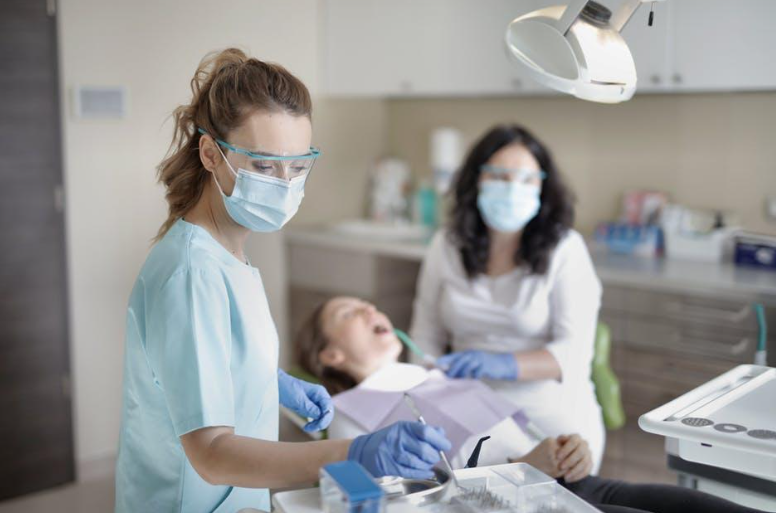From Pain to Progress: A Comprehensive Look at Root Canal Recovery Timeline
Pain is something we all deal with, but when it comes to our oral health, we should try not to. While a severe toothache or an infection may feel like it needs emergency attention, there is always another way around it.
But how long does root canal recovery take? Is it as complicated as it looks?
Below, we’re going to break everything down for you. Read on for a comprehensive look at the root canal recovery timeline.
Table of Contents
Initial Discomfort
Immediately after your root canal therapy, you may experience some discomfort. This is entirely common and is merely your body’s natural response to the procedure.
You’ll likely feel some discomfort and pain. We’ll be talking more about these in a bit. Keep in mind though that these are temporary and will subside within a few days as your mouth heals.
Early Sensations
In the first few hours after your root canal, your mouth might feel a bit strange. This is because of the local anesthetic, a medicine that numbs your mouth during the procedure. As this wears off, you could have a tingling sensation or mild discomfort.
However, this shouldn’t last more than a few hours. Over-the-counter pain relief can help during this time. It’s also key to avoid eating anything until the numbness is gone, so you don’t accidentally bite yourself.
Managing Mild Pain
When recovering from root canal treatment, you may feel some mild pain for a few days. This is normal and you can manage it easily.
Over-the-counter medicines like ibuprofen can help you deal with the pain. Also, avoid hard and crunchy foods for a while. Soft foods will be easier on your mouth as they heal.
Always remember to keep your mouth clean. Brush and floss gently, so you don’t hurt your mouth.
Normalizing Discomfort
After a few days, the mild pain and discomfort should start to get less and less. This is your body telling you that the healing process is in full swing.
During this time, it’s still important to be nice to your mouth. Continue eating soft foods and brushing gently. Any discomfort that does occur should be manageable with over-the-counter medicine.
If it isn’t, or if your pain gets worse, call your dentist right away. They would want to know about it and can help you feel better.
Post-Procedure Care
Taking care of yourself after a root canal is a vital step towards a swift and successful recovery. The root canal aftercare process isn’t too difficult, but it does require a bit of attention and care.
Medication Guidance
Following your root canal procedure, your dentist might prescribe some medication. This could include antibiotics, particularly if there was an infection. They can also prescribe pain relievers to manage discomfort.
Remember to take these as directed. Don’t skip doses – it’s important for your recovery. If your medicine makes you feel sick or you have a reaction, call your dentist right away. They can guide you on what to do next.
Rest and Recovery
After your root canal, you’ll need to take it easy – especially in the first 24 hours. Avoid heavy exercise or lifting heavy objects. This isn’t the time for house cleaning or yard work.
Instead, relax and do things that make you feel calm and happy. Read a book, watch a favorite TV show, or listen to some peaceful music.
Your body recovers best when you’re relaxed and stress-free. Make sure you get a good night’s sleep, too. Plenty of rest can speed up your recovery.
Swelling and Bruising
It’s common for some swelling or bruising to show up in the days after your root canal. This is your body’s way of healing.
The swelling is a sign that your body is fighting off any leftover infection. The bruising shows up because some blood vessels got disturbed during the procedure.
Don’t worry if you see a little swelling or bruising, it’s normal, and it will go away. But if it’s bothering you or if it gets worse, don’t hesitate to call your dentist.
Understanding Inflammation
Inflammation is your body’s way of protecting itself. After your root canal, you might notice your gums looking a bit red and feeling warm. This is inflammation working to heal your mouth.
But remember, too much swelling isn’t good. If it lasts more than a few days or if it hurts a lot, reach out to your dentist. They can help make sure everything is going okay with your recovery.
Ice Pack Benefits
An ice pack can be a real friend after your root canal and it’s easy to use, too. Wrap it in a cloth and hold it gently to your cheek. Do this for 15 minutes at a time, with breaks in between.
This will help lower the swelling and give you some relief. Never put an ice pack directly on your skin, though, because it can cause frostbite. Ice packs aren’t just good for the first day, either – you can use them as needed during your recovery.
Expected Bruising
Bruising is common after a root canal procedure, just like a small bruise you might get from bumping into something. Some people notice a little blue or purple spot on their gum or cheek.
It’s caused by a small amount of blood that leaks out of the tiny blood vessels during your root canal. This is normal and is part of the healing process.
The bruise will change color and then fade away over a few days. If the bruise is bothersome, you can gently apply a cold pack to help reduce it.
Dietary Adjustments
Dietary adjustments are an essential aspect of proper recovery. The type of food you consume can significantly influence the healing process. It can either facilitate rapid recovery or potentially lead to complications.
Soft Food Choices
It’s best to stick with soft foods like mashed potatoes, scrambled eggs, and yogurt. These types of foods are easy on your mouth and don’t need much chewing.
Remember, your mouth is still healing, and the less stress you put on it, the better. You can gradually reintroduce harder foods into your diet as your mouth gets better. But during the first few days, it’s best to keep it simple and soft.
Hydration Importance
Staying well-hydrated is important for recovery after a root canal. Drinking plenty of water can help your body heal faster. It aids in flushing out toxins and keeps your mouth clean, reducing the risk of infection.
Also, avoid drinking hot liquids as they may cause discomfort. Opt for cold or lukewarm drinks instead. Remember, though, stay away from alcohol and caffeinated beverages as they can slow down the healing process.
Avoiding Irritants
During recovery, your mouth might be sensitive to certain foods and drinks that can irritate the healing area. As such, try to avoid spicy foods, acidic fruits and beverages, and anything extremely hot or cold.
These can cause discomfort and even slow down the healing process. Stick to neutral and mild foods and drinks until your mouth fully recovers.
Activity Guidelines
After a root canal, your body needs some downtime. It’s important to balance rest with gentle activity to promote healing.
But, you need to be careful – high-energy activities can slow down the healing process. Read on for our activity guidelines during your recovery period.
Gentle Movement
Gentle movement can be very beneficial during your recovery period after a root canal. A short walk, light stretching, or some simple yoga poses can get your blood flowing and help your body heal.
Don’t overdo it though! Keep your activities light and easy. If you start to feel any discomfort or pain, it’s a signal from your body to take it easy and rest.
Listen to your body and give it the time it needs to heal properly. Stay away from strenuous or high-impact activities until your dentist gives the go-ahead.
Restorative Exercises
Restorative exercises are activities designed to help your body recover. They’re not intense, so they’re perfect for root canal recovery. These might include gentle stretches or light yoga poses that relax your muscles and improve your circulation.
The goal is not to tire yourself out but to stay active in a mild, calming way. Always listen to your body, and if you feel any discomfort, take a break. Slow, steady movement aids in a smoother recovery process.
Gradual Return to Normalcy
After a few days of taking it easy, you’ll start to feel like you’re getting back to your normal self. As the recovery process continues, you’ll gradually be able to reintroduce your usual activities.
Start slow – if you usually run, start with a walk. If you lift weights, start with lighter ones. If it hurts, take it easy. Before you know it, you’ll be back to your routine in no time.
Follow-Up Appointments
Your journey toward complete recovery from a root canal procedure includes follow-up appointments. These visits are crucial to ensure your mouth heals properly.
Your dentist will check your progress and confirm that there are no signs of infection. It’s essential to attend all scheduled follow-up appointments because they are the best way to address any concerns you might have.
Monitoring Progress
Your dentist will keep an eye on how your mouth is healing in these follow-up visits. They’ll look at how the area where the root canal was performed is healing and if there are any signs of infection. It’s a good time to tell your dentist if you’re feeling any ongoing discomfort or pain.
Addressing Concerns
Follow-up visits give you a chance to voice any worries or ask questions about your recovery. If something feels odd or if you’re not sure about something, this is the time to speak up.
Your dentist can provide answers, reassure you, and give extra advice to help your healing process. Remember, no question is too small if it concerns you.
X-Rays and Assessments
Your dentist may take X-rays during your follow-up visits to get a clear picture of how well your mouth is healing. This allows them to see beyond what’s visible to the naked eye.
The X-rays can help identify any hidden issues that might be lingering beneath the surface so they can promptly address them. The assessments performed at these visits are a crucial part of ensuring a smooth and successful recovery.
Emotional Well-Being
After the procedure, you might feel a mix of emotions – relief, fatigue, or even a bit of worry. That’s completely normal.
Just remember, taking care of your emotional well-being is as crucial as caring for your physical health during recovery. It’s okay to give yourself some time to feel good again.
Coping With Anxiety
Feeling anxious after your root canal is normal. Try simple relaxation techniques like deep breathing or listening to calming music.
You could also distract yourself with a book, movie, or a quiet walk. The key is to do something you enjoy that takes your mind off of your anxiety.
Mental Health Support
Post-procedure, it’s essential to keep a positive mindset. But if you’re feeling down or stressed out, it’s okay to ask for help.
Reach out to a trusted friend or family member and share your feelings. Or, consider speaking with a mental health professional.
They can provide you with strategies to help manage your stress and improve your mood. Remember that it’s just as important to take care of your mental health as it is to look after your physical health.
Patience During Recovery
Recovery from a root canal takes time, and it’s important to be patient. It might be frustrating to not feel 100% right away. Remember, your body has been through a procedure and it needs time to heal.
You may have good days and not-so-good days. Don’t rush things. Take it day by day and soon, you’ll be back to your normal self.
All About the Root Canal Recovery Timeline
A root canal recovery timeline can seem daunting for most people. But with good care and patience, your oral health can improve quickly.
Remember that every toothache journey is unique. Understanding the process will help make recovery smoother. In no time, you’ll be able to flash your healthy smile again.
If you enjoyed this article, you’ll love our other content on health, wellness tips, and more. Check out the rest of our content by visiting our website!











